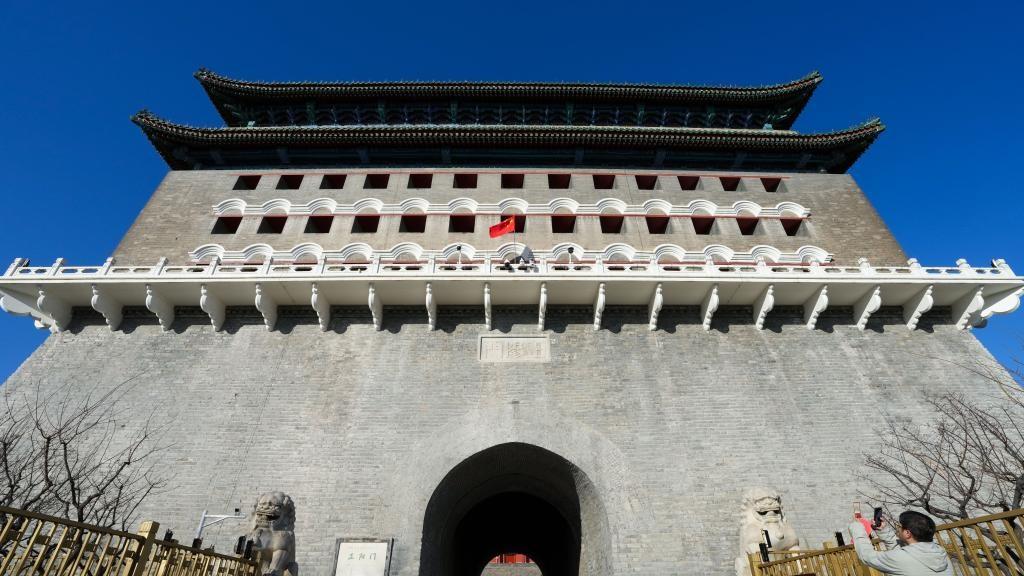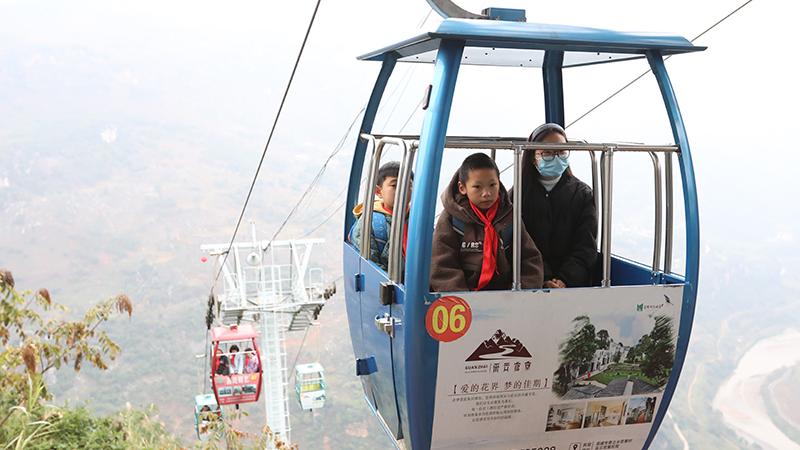Older workers may keep jobs a little longer

Xu Qiusheng, an 81-year-old village doctor, checks his medicine box in Yangfang village, Jiangxi province, on Jan 16. (Wan Xiang/Xinhua)
China is prioritizing protecting the rights of elderly workers and respecting their willingness to work as it began gradually raising the statutory retirement age on Wednesday.
The Ministry of Human Resources and Social Security, the Organization Department of the Communist Party of China Central Committee, and the Ministry of Finance jointly issued an interim guideline outlining operational measures for workers to choose their retirement age.
The new policy stems from a decision approved by the Standing Committee of the National People's Congress in September to raise the statutory retirement age for men to 63 and for women to either 55 or 58, depending on their occupation.
According to that decision, from Wednesday, male workers age 60 and female workers age 55 can ask for their retirement age to be extended one month every four months. Female workers who are 50 years old can ask for a one-month retirement extension every two months. By doing so, the retirement ages will increase to 63 for men and 55 or 58 for women in 15 years.
The guideline excludes those who reached the previous statutory retirement age before Tuesday.
Once the age increase is fully implemented, workers will be able to voluntarily retire up to three years earlier than the new statutory age, provided they have met the minimum pension contribution requirement, which is currently 15 years but will gradually rise to 20 years by 2030.
However, workers cannot retire before the previous statutory retirement age, which is 50 or 55 for women and 60 for men.
Those who choose early retirement must notify their employers in writing at least three months before their chosen retirement age.
Workers wishing to delay retirement once they reach the statutory ages must agree with their employers in writing at least one month in advance, with a limit of a three-year postponement.
Civil servants, senior executives in State-owned enterprises, and government officials must retire once they reach the new statutory retirement age, according to the guideline.
Employers are required to maintain the same rights and benefits for workers who postpone retirement, including social insurance and labor relations. Workers can reverse their decision to postpone if they come to an agreement with their employers.
The guideline underscores the importance of respecting individuals' working preferences and ensuring that retirement decisions are voluntary. It prohibits employers from pressuring workers into retirement decisions against their wishes.
Experts have welcomed the guideline. Zhao Zhong, dean of the School of Labor and Human Resources at the Renmin University of China in Beijing, said the specific measures included in the guideline will help the public and employers understand and implement the nation's policy on raising the retirement age.
"It has very detailed rules and measures on how to retire in advance or postpone retirement, which is a positive response to people's concerns about labor relations and working rights protections related to postponing retirement, showing greater respect for people's working willingness and rights," he said.
Li Chang'an, a professor from the Academy of China Open Economy Studies at the University of International Business and Economics in Beijing, said the guideline is an explanation of the retirement decision made by the Standing Committee of the NPC in September, which highlights the "voluntary and flexible" principles of the retirement policy.
He added that postponing the retirement age progressively is a result of socioeconomic development and changes in demographic structure, which allows for better use of human resources and eases the burdens on social and pension funds.
Figures from the Ministry of Civil Affairs show that China's elderly population — people 60 years old and above — accounted for more than one-fifth of the nation's total population in 2023.
Photos
Related Stories
Copyright © 2025 People's Daily Online. All Rights Reserved.









